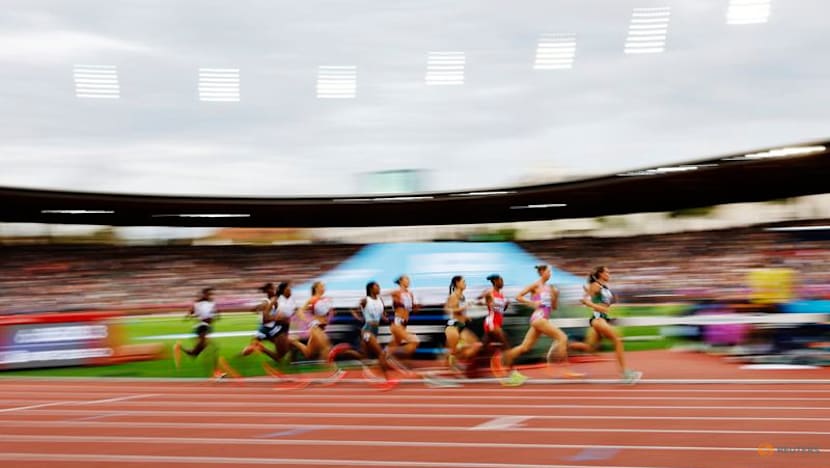Coe says gene testing of female athletes almost complete

FILE PHOTO: Athletics - Diamond League - Final - Zurich - Letzigrund, Zurich, Switzerland - August 28, 2025 General view during the Women's 3000m Final REUTERS/Stefan Wermuth/File Photo
TOKYO :World Athletics chief Sebastian Coe said on Friday the governing body were within "touching distance" of their goal of having all female athletes undergo gene testing before the start of the World Athletics Championships.
The one-time test, conducted by a cheek swab or blood test, was made a requirement of competing in the female category at the elite level of the sport in March following a meeting of the World Athletics Council.
Coe admitted there had been challenges and clarified that the goal was to have the female cohort tested before the world championships but not necessarily for the tests to be validated.
"We were on 95 per cent I think the other day, we're inching our way there, and we'll be within touching distance," he told a news conference on the eve of the start of the championships.
"It's had its challenges, but we are pretty much there, and I'm really pleased that we agreed to do that."
The tests identify the SRY gene, which is on the Y chromosome and triggers the development of male characteristics in mammals. Any athletes whose test shows the gene will be further investigated to decide their eligibility.
The tests replace previous rules whereby athletes with Differences of Sexual Development (DSD) were able to compete as long as they artificially reduced their testosterone levels.
The most famous DSD athlete is middle distance runner Caster Semenya, who was raised as a female and successfully competed in women's athletics despite developing male characteristics.
Semenya, who won two Olympic gold medals before World Athletics introduced rules limiting her participation in the female class, believes she is the victim of discrimination.
Now 34, the South African has pursued her cause through the law courts, most recently winning a case at the Grand Chamber of the European Court over her right to have her appeal against the World Athletics' rules heard at a Swiss Tribunal.
Coe has framed the tests as a key plank in protecting the integrity of female competition.
There were some problems testing some athletes in Canada, Norway and France but Coe said he thought it had been worth rushing the process through.
"The timeframe has been tight for some member federations," he added.
"The way the member federations and some of our external laboratories have worked alongside our area associations has been terrific. So yes, I think it's an initiative that was worth doing."
Coe said he was not aware of any athletes who had been excluded from the world championships after their results revealed the presence of the SRY gene.
"I don't know the answer to that, nor should I, that's really between our medical delegates and any individual athlete where we needed further interrogation after that test," he said.













